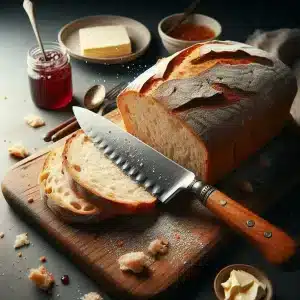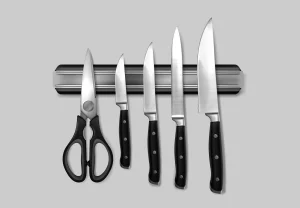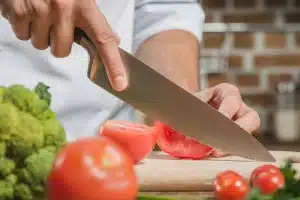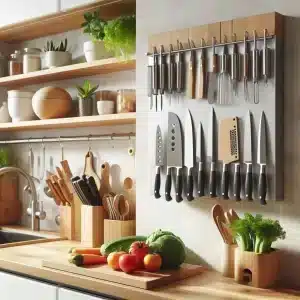As passionate experts in healthy cooking, we understand that choosing the right utensils is just as important as selecting the best ingredients for our recipes. However, there has been a growing concern lately about whether plastic kitchen utensils are truly safe for our daily use.
This is no wonder, especially considering the increase in diseases in recent years due to contamination in our food. Therefore, in this article, we will help you determine whether plastic utensils are safe or not.
First things first: What are plastic utensils made of?
Plastic utensils are commonly made from various types of plastic resins, such as polypropylene or polyethylene. These materials are chosen for their low cost and versatility. However, studies have shown that these materials are harmful when they come into contact with food at high temperatures. Therefore, we do not recommend using plastic utensils for cooking, as they are detrimental to your health.
And to make it clear, we will give you some reasons:
5 Reasons Why Plastic Utensils Are Not Safe Plastics
In general, are toxic
Studies have shown that many plastics release chemicals that can act as endocrine disruptors, adversely affecting our hormonal health. This is a significant concern that calls into question the safety of these utensils in the long term.
“BPA-Free” labels can be misleading
Although many plastic products are now marketed as “BPA-free,” this does not necessarily make them safe. BPA (Bisphenol A) is just one of many potentially harmful chemicals found in plastics; other compounds used instead can be equally harmful, such as BPS.
Contain heavy metals and traces of retardants
Some plastics may contain additives such as heavy metals and flame retardants to enhance their properties, which is an additional concern when these utensils come into direct contact with our food.
May contain PAHs
Polycyclic aromatic hydrocarbons (PAHs), known for their carcinogenic potential, have also been detected in plastic kitchen utensils, increasing the risk of food contamination during cooking.
Black-colored utensils can be the most dangerous
Among all plastic utensils, those that are black are the most harmful to health. These can release various harmful substances into the food during use, such as PVC, lead, antimony, mercury, etc.
Other Disadvantages of Plastic Utensils
Additionally, plastic utensils also have other problems. And the first of them is that they are not very resistant. Unlike other more durable materials, plastic utensils tend to degrade with use. One of the main reasons for their deterioration is their exposure to high temperatures, which, in addition to releasing plastic into the food, decreases their lifespan.
Also, the texture and composition of plastics can make it difficult to completely remove food residues, which could lead to the proliferation of bacteria and mold. Most of us have had plastic utensils in our kitchen. And we know how easily grease and dirt can stick. And sometimes, not even the strongest soap and force can remove it!
Healthier Alternatives to Plastic for Your Kitchen Utensils
Therefore, we recommend using other kitchen utensils:
Bamboo
Bamboo is an excellent natural, renewable, and biodegradable alternative. It is sturdy and safe for use in the kitchen, without the risk of releasing harmful substances. Here is a more detailed analysis of the safety of bamboo for the kitchen.
Stainless Steel
This material is not only durable and easy to clean, but it is also completely safe for cooking, without the risk of contaminating food.
Silicone
Although it is a type of plastic, food-grade silicone is more stable and safe at high temperatures, offering a healthier option for those looking for alternatives to conventional plastic.
Conclusion
After thoroughly reviewing the risks associated with plastic kitchen utensils and the available alternatives, it is clear that there are better options on the market. Bamboo, stainless steel, and food-grade silicone are safer and more durable alternatives that we highly recommend. Choosing the right kitchen utensils not only protects our health but also improves the quality of our culinary preparations. Opting for safe materials is an investment in our health and well-being.





